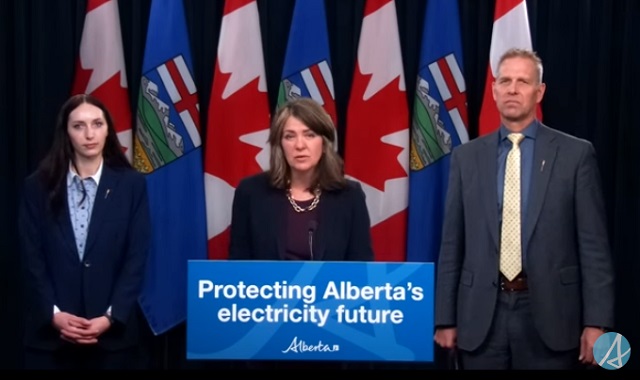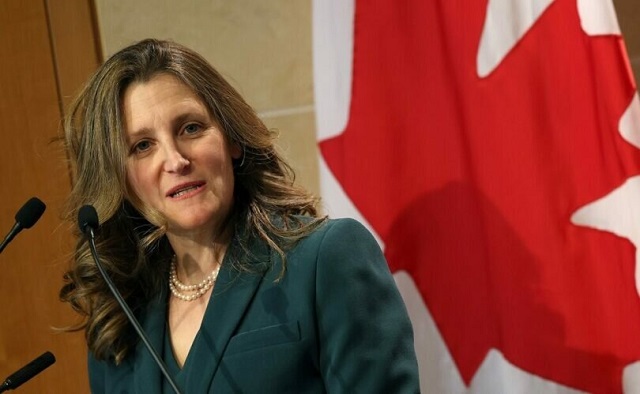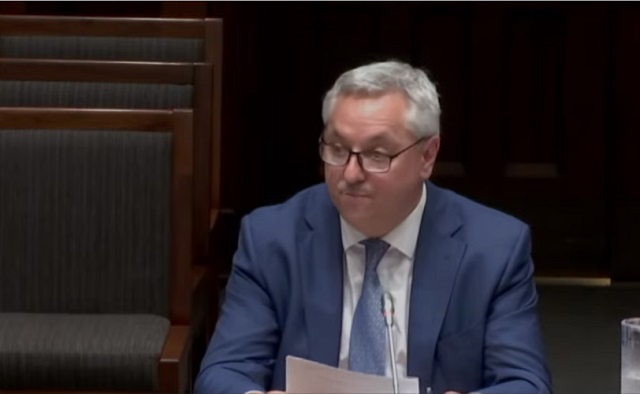Alberta
Flames and Oilers Battle of Alberta brings in a Million dollars for the Central Alberta Child Advocacy Centre

News Release from the Central Alberta Child Advocacy Centre
Records Broken for the CACAC Battle of Alberta
The Central Alberta Child Advocacy Centre held their signature event: The Battle of Alberta for the second time this past Tuesday and Wednesday after being postponed for a year, grossing over $1M!

The CACAC Battle of Alberta Charity Golf Tournament is a two-day event presented by the Edmonton Oilers and Calgary Flames. The two notorious rivals come together with one goal in mind – helping our children by bringing together both alumni and current players to battle it out on the green!
“The past 18 months have been extremely challenging and have certainly brought Mental Health even more to the forefront than it had already become before COVID. The fact that the Central Alberta Child Advocacy Centre is in the Mental Health sector it is fitting that we are having one of the first events post COVID.” – Terry Loewen, Board Chair, CACAC

The first night of the BOA includes a celebrity auction hosted at the Cambridge Hotel & Conference Centre, and this year records broke with highest bid for the top two players: Kelly Buchberger and Theoren Fleury. Twenty-eight other Oilers & Flames joined in to cap-off the 30 team roster, including: Lanny MacDonald, Louie Debrusk, Kris Russell, Glenn Anderson, and Mike Vernon. The Luau-themed event also included exclusive hot-stoves with Brian Burke, and was co-hosted by Danny Hooper and Ron Maclean.


“The Calgary Flames and the Calgary Flames Alumni are always so grateful for the support we receive from our fans in Central Alberta. We consider Red Deer our home that we happily share with our rivals in Edmonton during this important fundraising event in support of the Central Alberta Child Advocacy Centre. Congratulations to Terry Loewen and his hard-working committee on another extremely successful Battle of Alberta Golf Tournament. And a special thank you to Flames alumnus Sheldon Kennedy for his leadership in changing the way Alberta responds to child abuse. This new facility in Red Deer will ensure every child’s needs are met, and they are supported in the most child-friendly way.”
– Rollie Cyr, Executive Vice-President, Calgary Flames

The golf tournament was hosted at the beautiful Red Deer Golf and Country Club, where the 30 teams teed off with their celebrity players and caddies. Every hole was sponsored by local community organizations and included activities, draws, food and beverages, along with stories of the old days by alumnus and talks about the upcoming season with the current players.
“It was truly incredible to see the community come together for the Battle of Alberta Golf Tournament in support of the Central Alberta Child Advocacy Center (CACAC) in Red Deer. What the CACAC is doing to help children and families in central Alberta is remarkable, and they’re making a difference for so many children in need of support. The entire Oilers Entertainment Group and Oilers Alumni are proud to support central Alberta and the CACAC, and you can bet we’re already looking forward to the tournament in 2023.” –Bob Nicholson, Chairman, Edmonton Oilers

The event concluded with the After Party back at the Cambridge where another two hot-stoves took place, along with a record-shattering live auction and newly added virtual silent auction.
“To say we’re blown away by the generosity and support at the child advocacy centre is an understatement. As an organization, we could not have had three better events over the two days to celebrate the work we do for children. At the end of the day, we’re trying to make a difference for children and families in Central Alberta. What we witnessed at this event is what happens when a whole group of difference makers come together for the good of a community. A heartfelt thanks to the many people who helped make the Battle of Alberta tournament a success.”
– Mark Jones, CEO, CACAC
Another new stand out addition to the Battle of Alberta was the donation of two custom trucks to the Live Auction! A fully custom, one-of-a-kind Calgary Flames truck and Edmonton Oilers truck, both valued over $90,000 were given to the CACAC to auction off.


Dan Wiebe of Integrity Group of Companies heard about the work that the CACAC was doing and wanted to be involved. Dan enlisted the help of friend Brad Rempel of Alberta Boys Custom to customize an Edmonton Oilers truck specially for the BOA Live Auction!
After the donation of the Oilers truck, a few of our supporters wanted to ensure the “C of Red” was represented! Together, Rob McWilliams of McWilliam Auto Appraisals, Garrett Scott of Kipp Scott GMC, TNT Customs, and Dave Appleby of Vibe Audio came together to create their very own exclusive Calgary Flames Truck for the 2021 Battle of Alberta Live Auction. Both trucks were auctioned off Wednesday night with 100% of the proceeds going to the CACAC.
The CACAC is overwhelmed with the success of the event – and the support of the community. Final numbers are still coming in with net proceeds to be calculated in the coming weeks, but the CACAC is proud to say that over $1,000,000 gross was raised in two nights with a small but mighty group of people. Not only was money raised for the CACAC, going towards specific projects like the upcoming building project, but awareness was raised; conversations were had, and everyone stood up to be a voice for the children in our community who need it most.
The CACAC would like to thank every single donor, participant and volunteer who had a part in the 2021 Battle of Alberta.
“I want to thank all of you for your participation and sponsorships. I’m not sure if people fully realize the magnitude of their impact; the lives they change or lives they have saved by supporting this organization! You are all champions of the CACAC – thank you! – Terry Loewen, Board Chair, CACAC
The CACAC would like to recognize the following donors with special thanks to the committee and volunteers (Listed in randomized order):
Presenting, Major & Event Sponsors:
Edmonton Oilers | Calgary Flames | Integrity Group of Companies | D.J. Will Holdings | Alberta Boys Custom | McWilliam Auto Appraisals | Cambridge Hotel & Conference Centre | Eagle Builders | Kipp Scott GMC Cadillac Buick | Vibe Audio | Blue Grass
Sponsors:
HPC High Performance Coatings, Flo-Pro Performance Exhaust, Waschuk Pipeline, MNP, GSC Energy Services, Electric Horsepower, Scotia Wealth Management: Keylock Group, Gallagher Insurance, White Swan Environmental Ltd., ATB, Edmonton Oilers Community Foundation, Scotia Wealth Management: Calgary, Marshall Construction Company, Cody Snyder Bullbustin’, Earth Smart, Precede Occupational Health Services, Q2 ALS, Blackfalds Bulldogs, Red Deer Motors, Phone Experts, Jedco, Glover Trucks, The Liquor Hutch, Fourlane Ford, Ing + McKee Insurance, Bill Hull, Canadian Western Bank, Rogers Insurance, Cilantro & Chive, Tiffany’s Steakhouse, Shek Crane, Mal’s Diner, Chiefs, Molson Beer, Earls, Bo’s Bar and Grill, Culligan Water, Red Deer Golf & Country Club, Cooperators, Deerfoot Inn & Casino, TRC Auctions, Riverview Insurance, Abbey Platinum Master Built, Four Star Drywall, Pivotal LLP, Care Industries, Servus Credit Union, ViTreo, Melcor, Tar-ific Construction, Red Deer Discount Golf, The Coverall Shop, P.J.M. Home Advantage, Alberta Parking Lot Services, Adrenaline Exotics, General Appliances, Parkland Funeral Homes ,BJ Bobcat Trucking Ltd., Aesthetic Solutions, Apollo Landscaping Compass Geomatics, Big 105 & Rewind Radio, Gasoline Alley Harley-Davidson, Al Sim Remax, League Projects, The Zukiwsky Group, True Spirits Mobile Bar, Ten02, Willson Audio Visual, Ash Maclean Photography, Danny Hooper Productions, Prospector Visual, Haywork Secure Driving Services/Douglas Workman, Central Alberta Tile One, Duane Sokalski, Theoren Fleury, Grant Fuhr, Reid & Wright Advertising, Andrew Hutchins, Calgary Flames Foundation, Toast of the Town, Todayville, Trevor Roszell, Nucleus Energy Services, John Macphail, Kelly Hallgren, Laebon Homes, Johnston Ming Manning, Printing Place, Red Deer Rebels, Safari Spa & Salon, Flames TV, Oilers TV, SN960, OilersNOW, Rivertown, Chainsaw Spirit plus our incredible Silent Auction sponsors (check them out here!)
Please visit centralalbertacac.ca to learn more about the community support services the CACAC offers. Collectively, we can end child abuse.
Alberta
Alberta government should create flat 8% personal and business income tax rate in Alberta

From the Fraser Institute
By Tegan Hill
If the Smith government reversed the 2015 personal income tax rate increases and instituted a flat 8 per cent tax rate, it would help restore Alberta’s position as one of the lowest tax jurisdictions in North America
Over the past decade, Alberta has gone from one of the most competitive tax jurisdictions in North America to one of the least competitive. And while the Smith government has promised to create a new 8 per cent tax bracket on personal income below $60,000, it simply isn’t enough to restore Alberta’s tax competitiveness. Instead, the government should institute a flat 8 per cent personal and business income tax rate.
Back in 2014, Alberta had a single 10 per cent personal and business income tax rate. As a result, it had the lowest top combined (federal and provincial/state) personal income tax rate and business income tax rate in North America. This was a powerful advantage that made Alberta an attractive place to start a business, work and invest.
In 2015, however, the provincial NDP government replaced the single personal income tax rate of 10 percent with a five-bracket system including a top rate of 15 per cent, so today Alberta has the 10th-highest personal income tax rate in North America. The government also increased Alberta’s 10 per cent business income tax rate to 12 per cent (although in 2019 the Kenney government began reducing the rate to today’s 8 per cent).
If the Smith government reversed the 2015 personal income tax rate increases and instituted a flat 8 per cent tax rate, it would help restore Alberta’s position as one of the lowest tax jurisdictions in North America, all while saving Alberta taxpayers $1,573 (on average) annually.
And a truly integrated flat tax system would not only apply a uniform tax 8 per cent rate to all sources of income (including personal and business), it would eliminate tax credits, deductions and exemptions, which reduce the cost of investments in certain areas, increasing the relative cost of investment in others. As a result, resources may go to areas where they are not most productive, leading to a less efficient allocation of resources than if these tax incentives did not exist.
Put differently, tax incentives can artificially change the relative attractiveness of goods and services leading to sub-optimal allocation. A flat tax system would not only improve tax efficiency by reducing these tax-based economic distortions, it would also reduce administration costs (expenses incurred by governments due to tax collection and enforcement regulations) and compliance costs (expenses incurred by individuals and businesses to comply with tax regulations).
Finally, a flat tax system would also help avoid negative incentives that come with a progressive marginal tax system. Currently, Albertans are taxed at higher rates as their income increases, which can discourage additional work, savings and investment. A flat tax system would maintain “progressivity” as the proportion of taxes paid would still increase with income, but minimize the disincentive to work more and earn more (increasing savings and investment) because Albertans would face the same tax rate regardless of how their income increases. In sum, flat tax systems encourage stronger economic growth, higher tax revenues and a more robust economy.
To stimulate strong economic growth and leave more money in the pockets of Albertans, the Smith government should go beyond its current commitment to create a new tax bracket on income under $60,000 and institute a flat 8 per cent personal and business income tax rate.
Author:
Alberta
Province to stop municipalities overcharging on utility bills

Making utility bills more affordableAlberta’s government is taking action to protect Alberta’s ratepayers by introducing legislation to lower and stabilize local access fees. Affordability is a top priority for Alberta’s government, with the cost of utilities being a large focus. By introducing legislation to help reduce the cost of utility bills, the government is continuing to follow through on its commitment to make life more affordable for Albertans. This is in addition to the new short-term measures to prevent spikes in electricity prices and will help ensure long-term affordability for Albertans’ basic household expenses.
Local access fees are functioning as a regressive municipal tax that consumers pay on their utility bills. It is unacceptable for municipalities to be raking in hundreds of millions in surplus revenue off the backs of Alberta’s ratepayers and cause their utility bills to be unpredictable costs by tying their fees to a variable rate. Calgarians paid $240 in local access fees on average in 2023, compared to the $75 on average in Edmonton, thanks to Calgary’s formula relying on a variable rate. This led to $186 million more in fees being collected by the City of Calgary than expected.
To protect Alberta’s ratepayers, the Government of Alberta is introducing the Utilities Affordability Statutes Amendment Act, 2024. If passed, this legislation would promote long-term affordability and predictability for utility bills by prohibiting the use of variable rates when calculating municipalities’ local access fees. Variable rates are highly volatile, which results in wildly fluctuating electricity bills. When municipalities use this rate to calculate their local access fees, it results in higher bills for Albertans and less certainty in families’ budgets. These proposed changes would standardize how municipal fees are calculated across the province, and align with most municipalities’ current formulas.
If passed, the Utilities Affordability Statutes Amendment Act, 2024 would prevent municipalities from attempting to take advantage of Alberta’s ratepayers in the future. It would amend sections of the Electric Utilities Act and Gas Utilities Act to ensure that the Alberta Utilities Commission has stronger regulatory oversight on how these municipal fees are calculated and applied, ensuring Alberta ratepayer’s best interests are protected.
If passed, this legislation would also amend sections of the Alberta Utilities Commission Act, the Electric Utilities Act, Government Organizations Act and the Regulated Rate Option Stability Act to replace the terms “Regulated Rate Option”, “RRO”, and “Regulated Rate Provider” with “Rate of Last Resort” and “Rate of Last Resort Provider” as applicable. Quick facts
Related information |
-

 Business2 days ago
Business2 days agoMaxime Bernier warns Canadians of Trudeau’s plan to implement WEF global tax regime
-

 Censorship Industrial Complex18 hours ago
Censorship Industrial Complex18 hours agoDesperate Liberals move to stop MPs from calling Trudeau ‘corrupt’
-

 COVID-192 days ago
COVID-192 days agoWHO Official Admits the Truth About Passports
-

 International1 day ago
International1 day agoUN attacks stay-at-home motherhood as ‘gender inequality’
-

 Alberta2 days ago
Alberta2 days agoProvince to stop municipalities overcharging on utility bills
-

 Energy1 day ago
Energy1 day agoAnti-LNG activists have decided that they now actually care for LNG investors after years of calling to divest
-

 Alberta1 day ago
Alberta1 day agoAlberta government should create flat 8% personal and business income tax rate in Alberta
-

 Housing1 day ago
Housing1 day agoTrudeau’s 2024 budget could drive out investment as housing bubble continues









